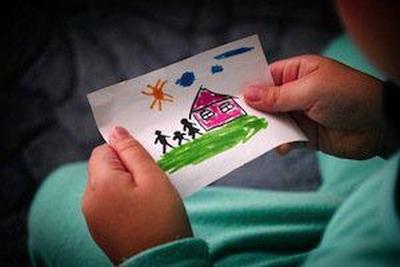Free Initial Consultations
 630-580-6373
630-580-6373With offices in Naperville, Joliet, Wheaton, Plainfield & Chicago
 Under Illinois law, judges are required to equitably divide marital property in a divorce. This means that before a judge can figure out how to divide property, a court must first decide whether property is marital property. It is important for divorcing couples to understand how the court will view commingled property and the consequences of commingling property—a process that can be aided by an experienced attorney.
Under Illinois law, judges are required to equitably divide marital property in a divorce. This means that before a judge can figure out how to divide property, a court must first decide whether property is marital property. It is important for divorcing couples to understand how the court will view commingled property and the consequences of commingling property—a process that can be aided by an experienced attorney.
Fair Division is not Equal Division
It is important to understand that fair division of property does not mean property will be split equally; instead, courts will divide property so that the division is fair to the couple under the circumstances of the divorce. And ultimately, the difference between marital and non-marital property is not always clear.
Non-Marital Property
In Illinois, there are several types of property that are not considered marital. Generally, property acquired by one spouse before the marriage and any value increases or income from the property are not considered marital property. Non-marital property includes:
 On January 1, 2016, Senate Bill 57 (SB57) will bring tremendous changes to various aspects of family law, including child custody and divorce. If you will be facing a child custody decision when SB57 goes into effect, then it is important that you understand how a court will make custody decisions under the new law.
On January 1, 2016, Senate Bill 57 (SB57) will bring tremendous changes to various aspects of family law, including child custody and divorce. If you will be facing a child custody decision when SB57 goes into effect, then it is important that you understand how a court will make custody decisions under the new law.
Currently, Illinois law allows courts to award physical and legal custody to one, or both parents. The child will live with the parent awarded custody and the custodial parent will almost exclusively make decisions about the child’s care. The custodial parent is also the parent who will make nearly all decisions about how the child is raised. This will change under SB 57.
Under SB57 courts will allocate parental responsibilities between both parents. Therefore, both parents will share responsibility for making decision about their child’s care and how their child is raised.
 A non-custodial parent may refuse to pay child support. He or she may cite reasons for not complying with child support orders such as concerns regarding how the payments are utilized by the custodial parent or a lack of visitation. Unfortunately, this is an common issue.
A non-custodial parent may refuse to pay child support. He or she may cite reasons for not complying with child support orders such as concerns regarding how the payments are utilized by the custodial parent or a lack of visitation. Unfortunately, this is an common issue.
If you are a non-custodial parent and are required to pay child support by a court, then it is important to understand that your duty to pay child support is not tied to your visitation or custody rights. In other words, you may not withhold child support, even if your former spouse is unjustly denying you visitation or parenting time. In fact, it is possible that a non-custodial parent may be required to pay child support yet does not have custodial or visitation rights.
In Illinois, the law regarding child support is focused on the best interests of the child, not the parent. Additionally, Illinois requires non-custodial parents to provide financial support to the custodial parents—children have the right to receive care and support from their parents. The parental responsibility to provide this care does not end because a marriage or relationship is over. If a non-custodial parent withholds or fails to pay child support, the Illinois department of child support services can assist the custodial parent in receiving support.
 Oftentimes, couples want to adopt a child from another country but do not realize that there is a specific process they must follow before they can bring their child to the United States.
Oftentimes, couples want to adopt a child from another country but do not realize that there is a specific process they must follow before they can bring their child to the United States.
When a couple adopts from another country, they must meet adoption criteria in the United States and their child’s home country. This does not mean international adoption is impossible; it simply means the adoptive parents must be prepared. If you are considering an international adoption, it is imperative that you understand the requirements before you begin the process.
First Steps for an International Adoption
It is important to first research the country from which you are hoping to adopt. You should consider several factors when selecting a country from which to adopt. Important factors to consider include:
 In Illinois, if parents are not married when their child is born, then they must establish the child’s paternity if they wish to establish certain rights between the child and the father. There are a number of ways to establish paternity for a child. The easiest method to establish paternity is for both parents to sign a Voluntary Acknowledgment of Paternity (VAP) form.
In Illinois, if parents are not married when their child is born, then they must establish the child’s paternity if they wish to establish certain rights between the child and the father. There are a number of ways to establish paternity for a child. The easiest method to establish paternity is for both parents to sign a Voluntary Acknowledgment of Paternity (VAP) form.
In some cases, however, parents may sign the form, yet later on wish to revoke their signature, for a number of reasons. If you are considering signing or revoking a VAP, it is important to understand the legal ramifications that go along with these actions and prepare yourself for the process.
Voluntary Acknowledgment of Paternity
Under Illinois law, unmarried parents can establish a child’s paternity through an order from a court. Arriving at a final order from a court can take a while and both parents may want to simply sign a VAP to ensure their child’s paternity is immediately known. A VAP is a legal agreement. By signing the VAP, the man who signs the form declares he is the child’s father and gives up the right to have a DNA test performed to determine the child’s parentage.
 When spouses separate, it is possible that one spouse will need financial support. Illinois law provides courts with specific guidelines for determining the amount and duration of spousal maintenance.
When spouses separate, it is possible that one spouse will need financial support. Illinois law provides courts with specific guidelines for determining the amount and duration of spousal maintenance.
If you and your spouse are divorcing and you are interested in learning more about spousal maintenance, do not hesitate to contact an attorney with skill and experience in the field of family law.
Types of Spousal Support
Alimony, or spousal maintenance, is the financial support one spouse pays to another during, or after, a divorce. There are several types of spousal support a court may grant to a spouse:
 When a couple has a child and they are not married, it is important that the father of the child establishes paternity. Establishing paternity is different than creating a bond with a child—paternity creates an important legal relationship between a father and child.
When a couple has a child and they are not married, it is important that the father of the child establishes paternity. Establishing paternity is different than creating a bond with a child—paternity creates an important legal relationship between a father and child.
When a father establishes paternity, he establishes the right to request visitation or child custody. Paternity also establishes a father's responsibilities such as child support or college contributions. Failing to establish paternity has grave legal consequences for a father. If you are deciding whether or not to establish paternity for a child, it is important to consider the implications under Illinois law.
Who Can Establish Paternity?
Not everyone can establish paternity. The right to establish paternity is limited to the natural mother, a man who believes he is the father of the child, or the child. In Illinois, a man is a child's legal father if:
 The Illinois Marriage and Dissolution of Marriage Act allows for legal separation. Legal separations are not very common, since the expense of a legal separation is similar to a divorce. However, it is possible that a couple may prefer legal separation over divorce.
The Illinois Marriage and Dissolution of Marriage Act allows for legal separation. Legal separations are not very common, since the expense of a legal separation is similar to a divorce. However, it is possible that a couple may prefer legal separation over divorce.
If you and your spouse are considering a legal separation, then there are a few factors you may want to consider as you begin the separation process.
What Are the Requirements for a Legal Separation?
When you and your spouse decide to legally separate, you will still be married. Illinois law does not require either spouse to provide grounds for the separation. However, there are some requirements for filing. You and your spouse should not live in the same home. Illinois will not consider you separated if you and your spouse live under the same roof.
Why Should We File for a Separation Instead of a Divorce?
 New changes to the Illinois Marriage and Dissolution of Marriage Act will go into effect in January 2016. The Act establishes rules for marriage, separation, divorce, custody, and child support in Illinois. Changes in the marriage act will update the grounds for divorce, eliminate reconciliation requirements and reduce the period of time a divorcing couple is required to wait before seeking a divorce.
New changes to the Illinois Marriage and Dissolution of Marriage Act will go into effect in January 2016. The Act establishes rules for marriage, separation, divorce, custody, and child support in Illinois. Changes in the marriage act will update the grounds for divorce, eliminate reconciliation requirements and reduce the period of time a divorcing couple is required to wait before seeking a divorce.
Couples are Limited to No-Fault Divorce
Senate Bill 57 will eliminate fault-based divorce. Couples seeking to divorce will no longer need grounds for filing for divorce. Currently, a couple may file for a divorce on accusatory grounds. The grounds for divorce include:
 Through a stepparent adoption, the natural child of one spouse becomes the legal child of the other spouse. Once a child is adopted, there are no legal differences between the natural children and children from another marriage. If you are considering adopting your stepchild, there are a few factors to consider to help your family through the process.
Through a stepparent adoption, the natural child of one spouse becomes the legal child of the other spouse. Once a child is adopted, there are no legal differences between the natural children and children from another marriage. If you are considering adopting your stepchild, there are a few factors to consider to help your family through the process.
Consent is Key to Stepparent Adoption
A stepparent adoption is a form of related adoption. However, in this type of related adoption, the other parent must provide consent for the adoption. Sometimes, the other birth parent may agree that stepparent adoption is in the best interests of the child. In these cases, it may not be difficult to obtain consent. The adoption will be more complex if the child’s other biological parent does not provide consent.
It is possible to terminate the other biological parent’s rights and eliminate the need to obtain his or her consent. You may terminate the other parent’s rights if you can demonstrate that the parent is unfit. Under the Illinois Adoption Act, a parent can be found unfit if he or she:
